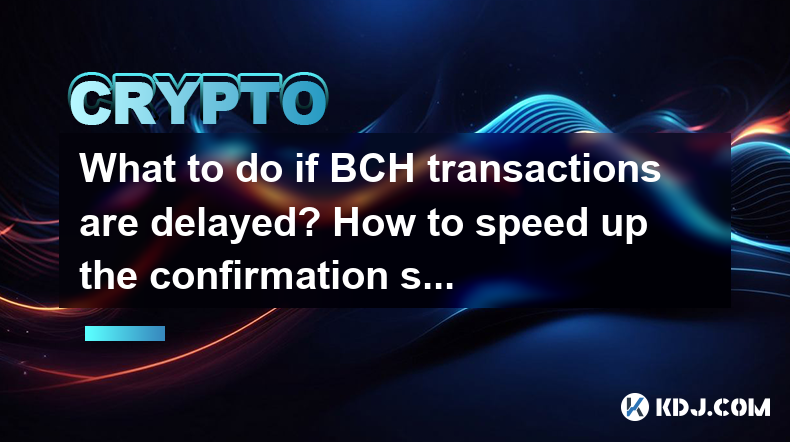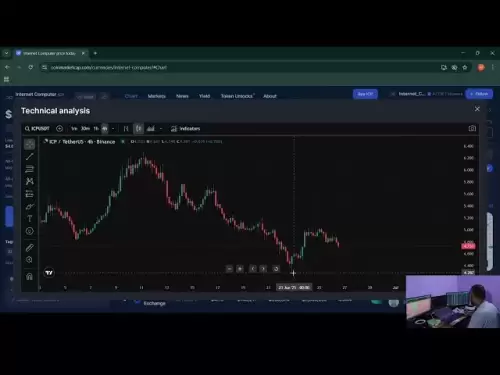-
 Bitcoin
Bitcoin $107,247.2038
-0.18% -
 Ethereum
Ethereum $2,424.7947
0.34% -
 Tether USDt
Tether USDt $1.0003
-0.02% -
 XRP
XRP $2.1171
-3.33% -
 BNB
BNB $645.6618
0.06% -
 Solana
Solana $141.5898
-1.32% -
 USDC
USDC $0.9998
0.00% -
 TRON
TRON $0.2710
-0.41% -
 Dogecoin
Dogecoin $0.1602
-2.99% -
 Cardano
Cardano $0.5553
-2.28% -
 Hyperliquid
Hyperliquid $36.3019
-2.42% -
 Bitcoin Cash
Bitcoin Cash $491.7212
2.04% -
 Chainlink
Chainlink $13.0810
-0.23% -
 Sui
Sui $2.6080
-5.06% -
 UNUS SED LEO
UNUS SED LEO $9.0040
-0.05% -
 Stellar
Stellar $0.2350
-3.06% -
 Avalanche
Avalanche $17.2294
-2.31% -
 Toncoin
Toncoin $2.8075
-1.05% -
 Shiba Inu
Shiba Inu $0.0...01121
-3.43% -
 Litecoin
Litecoin $84.2215
-0.32% -
 Hedera
Hedera $0.1429
-4.88% -
 Monero
Monero $312.2199
-0.90% -
 Dai
Dai $0.9997
-0.01% -
 Ethena USDe
Ethena USDe $0.9999
-0.02% -
 Polkadot
Polkadot $3.2973
-2.60% -
 Bitget Token
Bitget Token $4.4742
3.12% -
 Pi
Pi $0.5631
-10.10% -
 Uniswap
Uniswap $6.7817
-2.06% -
 Pepe
Pepe $0.0...09252
-3.74% -
 Aave
Aave $251.3830
-2.24%
What to do if BCH transactions are delayed? How to speed up the confirmation speed?
To speed up delayed BCH transactions, increase fees, use RBF or CPFP, choose an efficient wallet, monitor network congestion, and contact support if needed.
May 05, 2025 at 07:42 am

If you're experiencing delays with your Bitcoin Cash (BCH) transactions and are looking to speed up the confirmation process, there are several strategies you can employ. Understanding the reasons behind these delays and knowing how to address them can significantly improve your experience with BCH transactions.
Understanding BCH Transaction Delays
BCH transaction delays can occur due to various reasons, including network congestion, low transaction fees, or issues with the wallet or exchange you are using. When the BCH network is busy, transactions with lower fees may take longer to confirm as miners prioritize transactions with higher fees. Additionally, if your wallet or exchange is experiencing technical difficulties, this can also lead to delays in transaction processing.
Increasing Transaction Fees
One of the most effective ways to speed up BCH transaction confirmations is by increasing the transaction fee. Higher fees incentivize miners to include your transaction in the next block, thus reducing the time it takes to get confirmed. Here's how you can do it:
- Open your BCH wallet: Navigate to the transaction section where you can adjust the fee.
- Adjust the fee: Increase the fee to a higher amount. Many wallets allow you to choose between different fee levels, such as 'low', 'medium', or 'high'.
- Confirm the transaction: Once you've set a higher fee, confirm the transaction. The increased fee should help your transaction get processed faster.
Using the Replace-By-Fee (RBF) Feature
Some BCH wallets support the Replace-By-Fee (RBF) feature, which allows you to replace a transaction that has not yet been confirmed with a new one that has a higher fee. Here's how to use RBF:
- Check if your wallet supports RBF: Not all wallets support this feature, so ensure your wallet does before proceeding.
- Create a new transaction: If your original transaction has not been confirmed, create a new transaction with the same details but a higher fee.
- Broadcast the new transaction: The new transaction with the higher fee will replace the original one, and it should be confirmed faster.
Using Child Pays For Parent (CPFP)
Another method to speed up a delayed BCH transaction is by using the Child Pays For Parent (CPFP) technique. This involves creating a new transaction that spends the outputs of the delayed transaction, with a higher fee. Here's how to do it:
- Identify the delayed transaction: Find the transaction ID of the delayed transaction.
- Create a new transaction: Use the outputs of the delayed transaction to create a new transaction with a higher fee.
- Broadcast the new transaction: The new transaction will incentivize miners to confirm both the new and the original transaction, thus speeding up the process.
Choosing the Right Wallet
The wallet you use can significantly impact the speed of your BCH transactions. Some wallets are optimized for faster transaction processing and offer features like RBF and CPFP. Here are some wallets known for their efficiency:
- Electron Cash: A popular BCH wallet that supports RBF and CPFP, making it easier to manage delayed transactions.
- Bitcoin.com Wallet: Another user-friendly wallet that offers features to help speed up transactions.
- Ledger Live: If you use a hardware wallet, Ledger Live supports BCH and can help manage transaction fees effectively.
Monitoring Network Congestion
Monitoring the BCH network congestion can help you anticipate potential delays and adjust your transaction fees accordingly. You can use tools like BCH Block Explorer to check the current network status and average transaction fees. If the network is congested, consider increasing your fee to ensure faster confirmation.
Contacting Support
If you've tried all the above methods and your BCH transaction is still delayed, contacting the support team of your wallet or exchange can be helpful. They may be able to provide additional assistance or insights into why your transaction is taking longer than expected.
Frequently Asked Questions
Q: Can I cancel a BCH transaction if it's delayed?
A: If your transaction has not been confirmed, you may be able to cancel it using the RBF feature if your wallet supports it. However, once a transaction is confirmed, it cannot be canceled.
Q: How long does it usually take for a BCH transaction to confirm?
A: Under normal network conditions, a BCH transaction typically confirms within 10 minutes. However, during times of high network congestion, it may take longer.
Q: Are there any risks associated with increasing transaction fees?
A: Increasing transaction fees can help speed up your transaction, but it also means you'll pay more for the transaction. There's no risk to the transaction itself, but you should consider whether the increased cost is worth the faster confirmation.
Q: Can I use the same methods to speed up transactions on other cryptocurrencies?
A: Some methods, like increasing transaction fees and using RBF or CPFP, may work on other cryptocurrencies that support these features. However, each cryptocurrency has its own network and rules, so it's important to check the specific features and capabilities of the cryptocurrency you're using.
Disclaimer:info@kdj.com
The information provided is not trading advice. kdj.com does not assume any responsibility for any investments made based on the information provided in this article. Cryptocurrencies are highly volatile and it is highly recommended that you invest with caution after thorough research!
If you believe that the content used on this website infringes your copyright, please contact us immediately (info@kdj.com) and we will delete it promptly.
- Ruvi AI vs. Tron: The Race to the $1 Mark and Beyond
- 2025-06-27 06:50:12
- Bitcoin, Ethereum, and Inflation Data: Navigating the Crypto Landscape
- 2025-06-27 06:55:12
- UAE, Crypto, and Trump: A Surprising Intersection in 2025
- 2025-06-27 06:55:12
- BTC Bull Token: Price Prediction and the 50x Potential
- 2025-06-27 06:57:14
- Moonveil's $MORE Token Launching on CEXs: A New Era for Web3 Gaming
- 2025-06-27 06:31:58
- Crypto Presales in 2025: MAGACOIN FINANCE and the Hunt for New Coins
- 2025-06-27 04:50:12
Related knowledge

How to customize USDT TRC20 mining fees? Flexible adjustment tutorial
Jun 13,2025 at 01:42am
Understanding USDT TRC20 Mining FeesMining fees on the TRON (TRC20) network are essential for processing transactions. Unlike Bitcoin or Ethereum, where miners directly validate transactions, TRON uses a delegated proof-of-stake (DPoS) mechanism. However, users still need to pay bandwidth and energy fees, which are collectively referred to as 'mining fe...

USDT TRC20 transaction is stuck? Solution summary
Jun 14,2025 at 11:15pm
Understanding USDT TRC20 TransactionsWhen users mention that a USDT TRC20 transaction is stuck, they typically refer to a situation where the transfer of Tether (USDT) on the TRON blockchain has not been confirmed for an extended period. This issue may arise due to various reasons such as network congestion, insufficient transaction fees, or wallet-rela...

How to cancel USDT TRC20 unconfirmed transactions? Operation guide
Jun 13,2025 at 11:01pm
Understanding USDT TRC20 Unconfirmed TransactionsWhen dealing with USDT TRC20 transactions, it’s crucial to understand what an unconfirmed transaction means. An unconfirmed transaction is one that has been broadcasted to the blockchain network but hasn’t yet been included in a block. This typically occurs due to low transaction fees or network congestio...

How to check USDT TRC20 balance? Introduction to multiple query methods
Jun 21,2025 at 02:42am
Understanding USDT TRC20 and Its ImportanceUSDT (Tether) is one of the most widely used stablecoins in the cryptocurrency market. It exists on multiple blockchain networks, including TRC20, which operates on the Tron (TRX) network. Checking your USDT TRC20 balance accurately is crucial for users who hold or transact with this asset. Whether you're sendi...

What to do if USDT TRC20 transfers are congested? Speed up trading skills
Jun 13,2025 at 09:56am
Understanding USDT TRC20 Transfer CongestionWhen transferring USDT TRC20, users may occasionally experience delays or congestion. This typically occurs due to network overload on the TRON blockchain, which hosts the TRC20 version of Tether. Unlike the ERC20 variant (which runs on Ethereum), TRC20 transactions are generally faster and cheaper, but during...

The relationship between USDT TRC20 and TRON chain: technical background analysis
Jun 12,2025 at 01:28pm
What is USDT TRC20?USDT TRC20 refers to the Tether (USDT) token issued on the TRON blockchain using the TRC-20 standard. Unlike the more commonly known ERC-20 version of USDT (which runs on Ethereum), the TRC-20 variant leverages the TRON network's infrastructure for faster and cheaper transactions. The emergence of this version came as part of Tether’s...

How to customize USDT TRC20 mining fees? Flexible adjustment tutorial
Jun 13,2025 at 01:42am
Understanding USDT TRC20 Mining FeesMining fees on the TRON (TRC20) network are essential for processing transactions. Unlike Bitcoin or Ethereum, where miners directly validate transactions, TRON uses a delegated proof-of-stake (DPoS) mechanism. However, users still need to pay bandwidth and energy fees, which are collectively referred to as 'mining fe...

USDT TRC20 transaction is stuck? Solution summary
Jun 14,2025 at 11:15pm
Understanding USDT TRC20 TransactionsWhen users mention that a USDT TRC20 transaction is stuck, they typically refer to a situation where the transfer of Tether (USDT) on the TRON blockchain has not been confirmed for an extended period. This issue may arise due to various reasons such as network congestion, insufficient transaction fees, or wallet-rela...

How to cancel USDT TRC20 unconfirmed transactions? Operation guide
Jun 13,2025 at 11:01pm
Understanding USDT TRC20 Unconfirmed TransactionsWhen dealing with USDT TRC20 transactions, it’s crucial to understand what an unconfirmed transaction means. An unconfirmed transaction is one that has been broadcasted to the blockchain network but hasn’t yet been included in a block. This typically occurs due to low transaction fees or network congestio...

How to check USDT TRC20 balance? Introduction to multiple query methods
Jun 21,2025 at 02:42am
Understanding USDT TRC20 and Its ImportanceUSDT (Tether) is one of the most widely used stablecoins in the cryptocurrency market. It exists on multiple blockchain networks, including TRC20, which operates on the Tron (TRX) network. Checking your USDT TRC20 balance accurately is crucial for users who hold or transact with this asset. Whether you're sendi...

What to do if USDT TRC20 transfers are congested? Speed up trading skills
Jun 13,2025 at 09:56am
Understanding USDT TRC20 Transfer CongestionWhen transferring USDT TRC20, users may occasionally experience delays or congestion. This typically occurs due to network overload on the TRON blockchain, which hosts the TRC20 version of Tether. Unlike the ERC20 variant (which runs on Ethereum), TRC20 transactions are generally faster and cheaper, but during...

The relationship between USDT TRC20 and TRON chain: technical background analysis
Jun 12,2025 at 01:28pm
What is USDT TRC20?USDT TRC20 refers to the Tether (USDT) token issued on the TRON blockchain using the TRC-20 standard. Unlike the more commonly known ERC-20 version of USDT (which runs on Ethereum), the TRC-20 variant leverages the TRON network's infrastructure for faster and cheaper transactions. The emergence of this version came as part of Tether’s...
See all articles
























































































